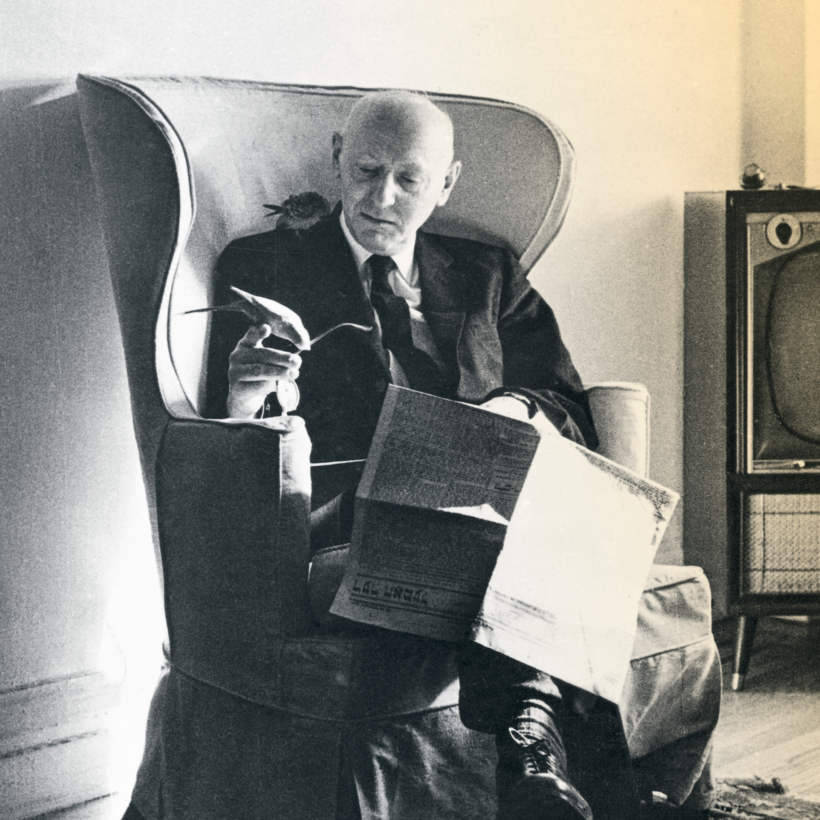The papers of Isaac Bashevis Singer—the Polish-born Jewish-American 1978 laureate of the Nobel Prize for Literature—are held at the University of Texas at Austin’s Harry Ransom Center. The collection includes handwritten drafts of his writings in Yiddish as well as English translations filled with his own revisions, and it’s full of treasures still to be shared with the world.
When I traveled to Austin in 2014 in search of essays by Singer, I didn’t know exactly what I would find. So I called up any entries in the extensive finding aid with titles that sounded like they referred to an essay—eventually locating enough previously translated texts to constitute a coherent volume. But there were other categories of texts that I found, including introductory notes for events and acceptance speeches for some of his many awards, such as his 1975 honorary doctorate from the Hebrew University of Jerusalem, and his 1981 Buber-Rosenzweig Medal, awarded to those actively contributing to Christian-Jewish understanding.

